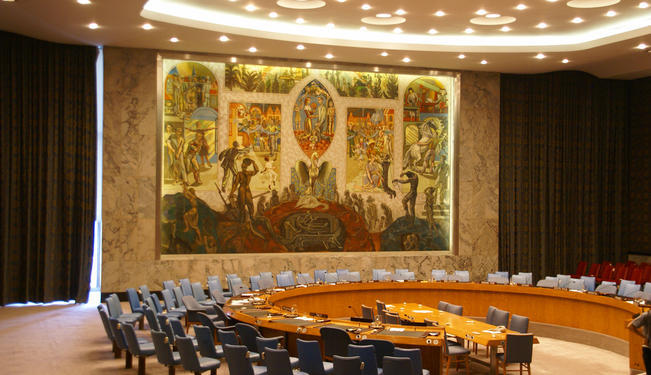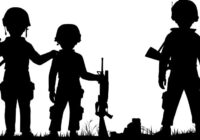Pledge $1 to keep us going.
Back in 1939, September was the month when World War II broke out. So in 2013, it is reassuring to see that the US and Iran might be beginning their first tentative steps to rest the ghosts of 1953 and 1979. The former scarred Iran because the CIA was influenced by the British to conduct a coup against a democratically elected Iranian government. The latter scarred the US because Ayatollah Khomeini came to power in a revolution and caused a hostage crisis that led to the fall of Jimmy Carter.
After the saber rattling of the last few years, perhaps Barack Obama and Hassan Rouhani might give diplomacy a better shot to resolve their difference, leading Binyamin Netanyahu less prone to drawing ridiculous images in front of the United Nations.
The chemical weapons deal on Syria brings to an end the furor created by the threat of US intervention. David Cameron had already been given a bloody nose by the UK parliament that decided against British engagement in Syria after Tony Blair’s disastrous participation in the Iraq War. In the US, Obama was under enormous pressure, and his own comment about drawing the line at the use of chemical weapons had put him between a rock and a hard place.
Like most Middle East dictators, Bashar al-Assad is not an attractive character. Yet most minorities, including Christians, prefer him to the Saudi-funded rebels, many of whom tend to espouse an Islam that is both radical and intolerant. By acting against Assad, Obama risked benefiting groups that hate the US much more than the Syrian president.
By not acting, Obama risked opprobrium at home from the right that would label him as weak and vacillating. The Economist, the venerable 1843 institution from the days of the British Empire, carried a cover story with a photo of Assad with the title, “Hit Him Hard.” The question Obama probably had on his mind was, “what next?” Eventually, Obama took the deal offered by Vladimir Putin, but only after a breathtaking act of public diplomacy on the part of the Russian president, who published an article in the New York Times.
While Syria and Iran cooled off, Kenya experienced a brutal attack in Nairobi by al-Shabab, a Somali group whose origins we have examined in some detail. In Egypt, the marginalization of the Muslim Brotherhood continues. Its activities have been banned by the Egypt’s judges and the organization is expected to be outlawed in November. Mubarakism seems to be back in right earnest and Egypt’s brief brush with democracy seems a long time ago. Sudan is seeing protests that have yet to hit mainstream media but are clearly likely to grow. In Greece, the founder of Golden Dawn, a far-right party, has been arrested. India has seen bloody riots in the state of Uttar Pradesh, and the charismatic Bo Xilai has been found guilty on all charges in China.
In September, we took a look at poverty and stirred a debate about how poor is poor. We also ran a 360° Analysis on human trafficking and our highest read article on the subject was by Rachel Lloyd. Please find below our pick for September.
Before you click on the articles, however, we ask you to pledge $1 to keep us going. We are independent and want to stay that way. This is the time we need your support.
1: Girls Like Us: Johns – The Men Who Buy Sex — by Rachel Lloyd
If men know that the sex industry is harmful to girls and women, why do they participate in it?
2: Chemical Weapons: Not the Heart of the Matter — by David Holdridge
Too many Syrians have been killed for a deal to contain chemical weapons.
3: Beyond Islamism — by Tariq Ramadan
Muslim-majority societies are crying out for an intellectual revolution.
4: North Korea: “The Marshall” is a Game Changer — by Michael Bassett
North Korea’s “charm offensive” is further evidence of an evolving regime.
5: How Poor is Poor? — Lee-Roy Chetty
“Anyone who has ever struggled with poverty knows how extremely expensive it is to be poor.”
Image: Copyright © Shutterstock. All Rights Reserved
Support Fair Observer
We rely on your support for our independence, diversity and quality.
For more than 10 years, Fair Observer has been free, fair and independent. No billionaire owns us, no advertisers control us. We are a reader-supported nonprofit. Unlike many other publications, we keep our content free for readers regardless of where they live or whether they can afford to pay. We have no paywalls and no ads.
In the post-truth era of fake news, echo chambers and filter bubbles, we publish a plurality of perspectives from around the world. Anyone can publish with us, but everyone goes through a rigorous editorial process. So, you get fact-checked, well-reasoned content instead of noise.
We publish 2,500+ voices from 90+ countries. We also conduct education and training programs
on subjects ranging from digital media and journalism to writing and critical thinking. This
doesn’t come cheap. Servers, editors, trainers and web developers cost
money.
Please consider supporting us on a regular basis as a recurring donor or a
sustaining member.
Will you support FO’s journalism?
We rely on your support for our independence, diversity and quality.







Comment